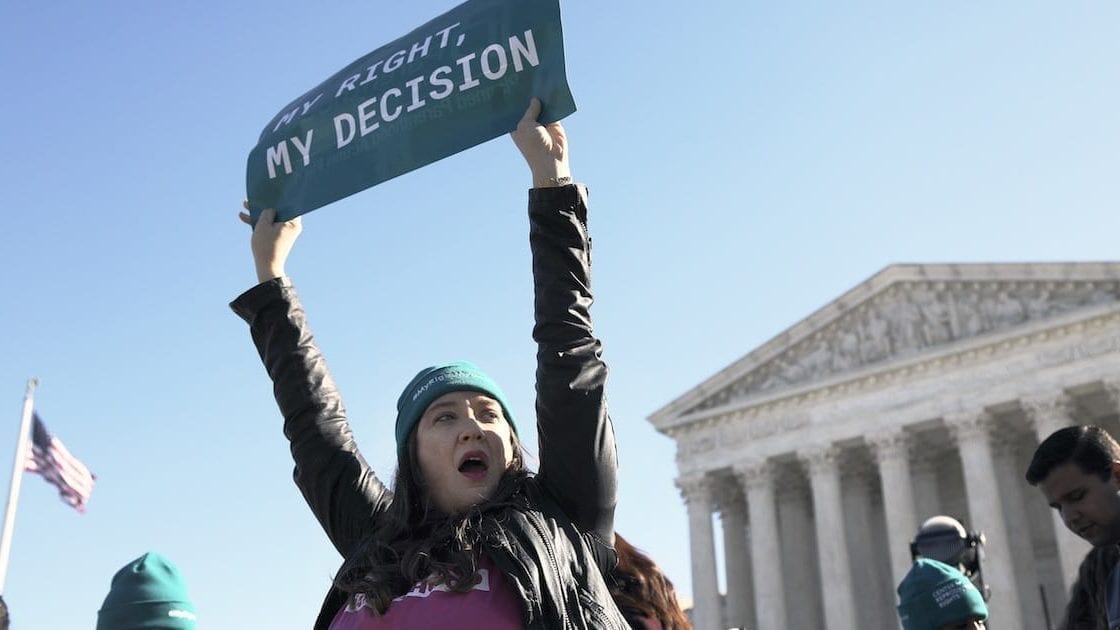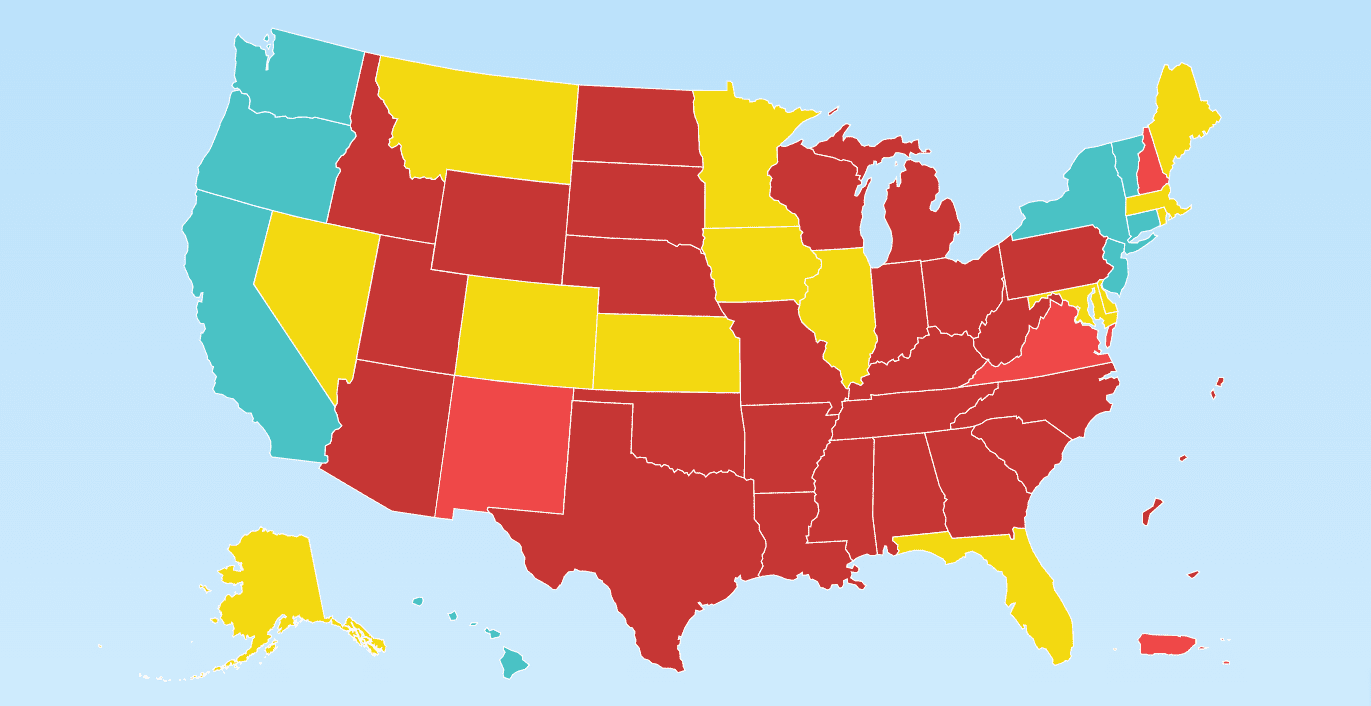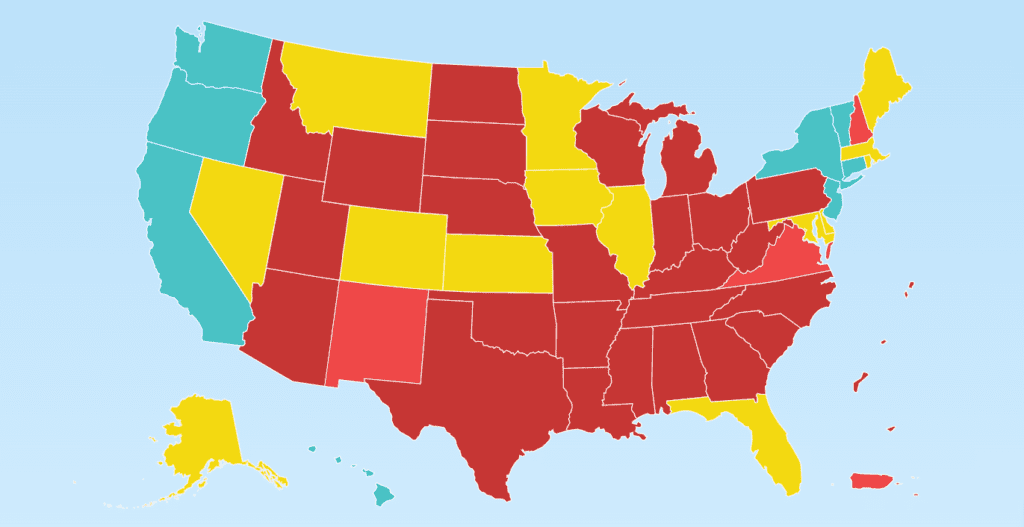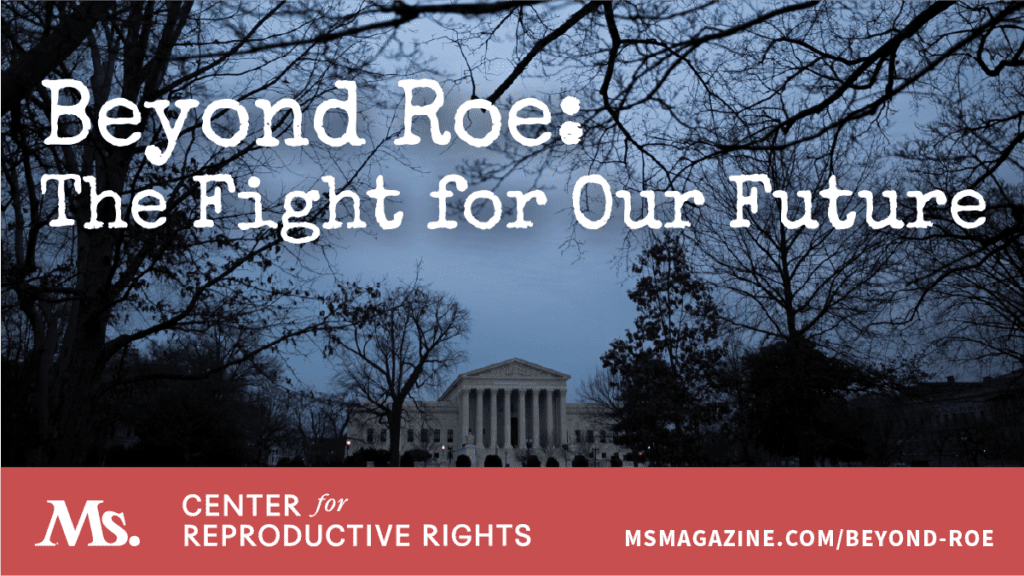Colorado Becomes the 22nd State to Protect Abortion Rights
While many states race to restrict or ban abortion, other states enact measures protecting rights and access.
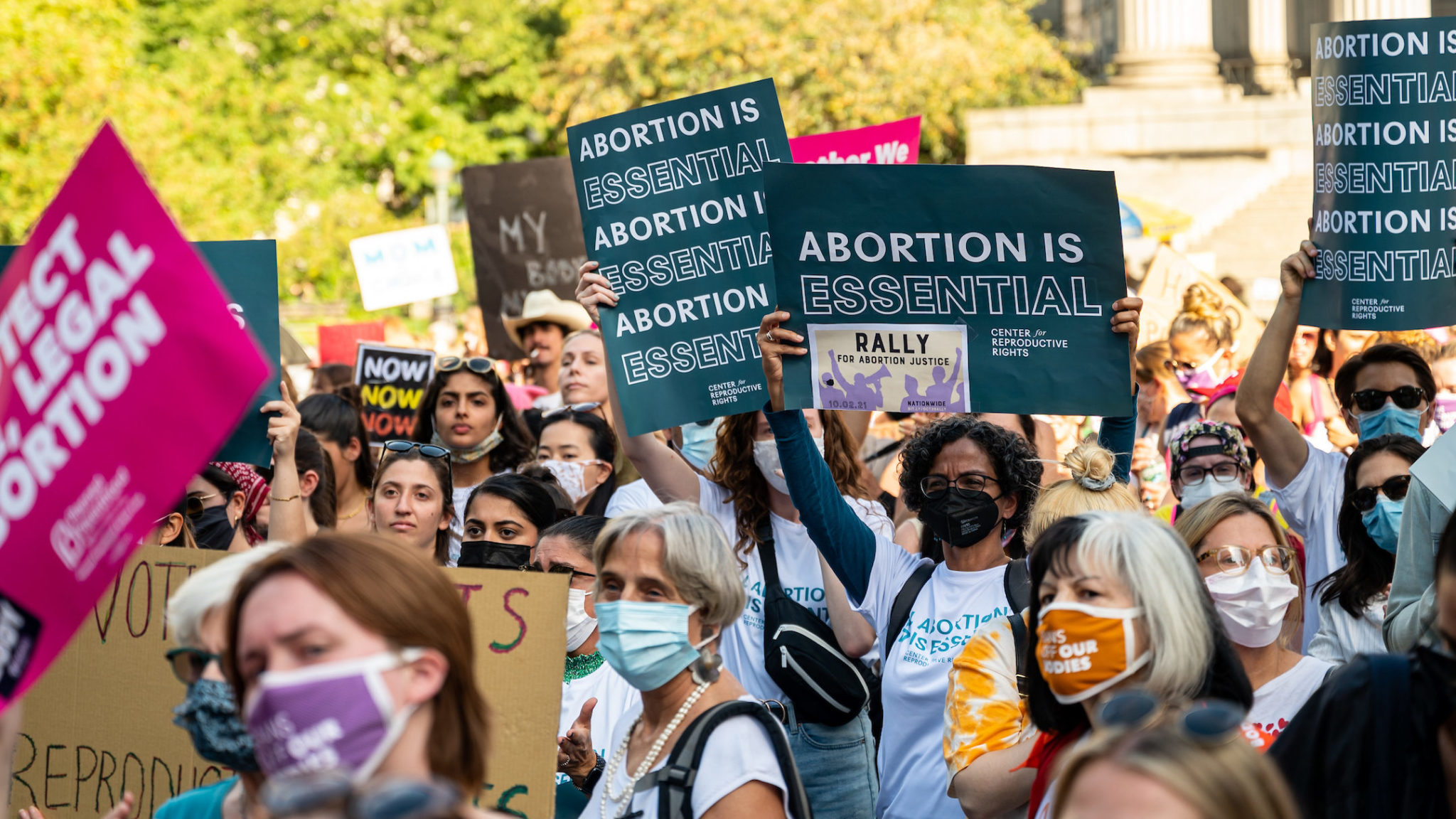
While anti-abortion state lawmakers are stepping up their efforts to ban or severely restrict abortion if the U.S. Supreme Court overturns Roe v. Wade, other states have acted to protect abortion rights and access.
Yesterday, Colorado Governor Jared Polis signed the Reproductive Health Equity Act (RHEA), which protects access to abortion care in the state. With the enactment of RHEA, Colorado becomes the 22nd state—plus the District of Columbia—with abortion rights protections.
Advocacy organizations Colorado Organization for Latina Opportunity and Reproductive Rights (COLOR) and Cobalt led efforts to pass the bill, along with Colorado state legislators and reproductive rights champions House Majority Leader Daneya Esgar, Representative Meg Froelich, and Senator Julie Gonzales, sponsors of the bill. The Center for Reproductive Rights was a supportive partner in the effort to pass the Colorado law, providing testimony before the state legislature and legal assistance to Colorado partners advocating for it.
In an op-ed published in Colorado Politics supporting the enactment of RHEA, the Center’s Lizzy Hinkley, an attorney and state policy expert who previously worked as a reproductive rights advocate in Colorado, noted that Colorado has no state law explicitly protecting abortion rights—so if the U.S. Supreme Court were to weaken or overturn Roe v. Wade, the people of Colorado would be without any abortion rights protections. Alluding to the chaos in Texas after it banned abortion after six weeks, Hinkley stated, “RHEA will ensure that the burdens thrust on Texans are not thrust on Coloradans.”
U.S. Supreme Court to Rule Soon in Consequential Abortion Rights Case
More about the U.S. Supreme Court case.
Before the end of its term in June, the U.S. Supreme Court is expected to issue a ruling in Dobbs v. Jackson Women’s Health Organization, the most consequential abortion rights case in generations. In the case—in which the Center is challenging a Mississippi abortion ban—the state of Mississippi has asked the Court to overturn Roe v. Wade and rule that there is no constitutional right to abortion.
Anticipating the possible fall of Roe, anti-abortion lawmakers have been passing ever-more extreme abortion bans and restrictions. In 2021, states passed such laws at a rate higher than in any previous year since the U.S. Supreme Court affirmed the constitutional right to abortion in 1973. So far this year, 13 states have introduced 16 laws that copycat Texas’s law and vigilante scheme that has banned abortion after six weeks of pregnancy and ended most access in the state since September.
According to the Center’s “What if Roe Fell?” interactive tool—which analyzes state laws, constitutions, and court decisions–24 states are poised to act to ban abortion if the Supreme Court takes away the constitutional right to abortion.
States Have Protected Abortion Rights and Expanded Access
Several states have protected abortion rights and access, either by enacting laws or through court rulings recognizing abortion protections under state constitutions.
The Center’s “What if Roe Fell?” shows 22 states—plus the District of Columbia—as having abortion protections on their books. The states fall into two categories:
“Protected” States: With the enactment of the new Colorado law, 15 states, plus the District of Columbia, fall into the “protected” category—meaning that the right to abortion is protected by state law, although there are limitations on access to care.
The states in this category are: Alaska, Colorado, Delaware, Florida, Illinois, Iowa, Kansas, Maine, Maryland, Massachusetts, Minnesota, Montana, Nevada, New Jersey, and Rhode Island, plus the District of Columbia.
“Expanded Access” States: There are seven states in the “Expanded Access” category, which means the right to abortion is protected by state statutes or state constitutions and other laws have created additional access to abortion care.
The states in this category are: California, Connecticut, Hawaii, New York, Oregon, Vermont, and Washington
In Most States, Abortion is Not Protected on the State Level
The Center’s analysis shows that 28 states offer no explicit abortion rights protections. In four states, abortion is “Not Protected,” meaning abortion may continue to be accessible but is unprotected by state and district law. Those states are: New Hampshire, New Mexico, Virginia, and Wyoming.
More on state abortion laws.
Twenty-four states—nearly all in the central and southern parts of the country—are characterized as “Hostile,” meaning they could immediately act to ban abortion entirely if the Supreme Court were to weaken or overturn Roe. They are extremely vulnerable to the revival of old abortion bans or the enactment of new ones, and none of them has legal protections for abortion. Those “Hostile” states are: Alabama, Arizona, Arkansas, Georgia, Idaho, Indiana, Kentucky, Louisiana, Michigan, Mississippi, Missouri, Nebraska, North Carolina, North Dakota, Ohio, Oklahoma, Pennsylvania, South Carolina, South Dakota, Tennessee, Texas, Utah, West Virginia, and Wisconsin
If the U.S. Supreme Court sides with the state of Mississippi in Dobbs v. Jackson Women’s Health Organization and rules there is no constitutional right to abortion—despite almost 50 years of precedent—state laws and constitutions will be more critical than ever.
To find out more about each state’s laws, constitutions and court rulings pertaining to abortion rights and access, explore the Center’s “What of Roe Fell?” interactive map and tool.
